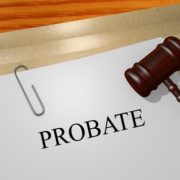What Is An Estate Plan, Part II – Life Documents?
Baron Law LLC, of Cleveland, Ohio, offers the following information on different components of an Estate Plan. To see what plan is best suited for your needs, contact Baron Law, LLC, Cleveland, Ohio
In a previous post, last will and testaments, guardianships, and letters of intent were explored. These documents however, only provide a partial estate plan and focus primarily on conveying one’s wishes and property in the event of death. Estate plans, at least those competently prepared, are comprehensive and should also provide guidance and instructions for critical situations during life as well.
Who will manage my finances and investments if I am sick or incapacitated? Who will pick what doctor treats me or if a risky but potentially lifesaving procedure should be performed? What if I am put on life sustaining medical support? In what situations and for how long will I remain on such support, if I want to be on it at all? These types of issues and questions also must be addressed and accounted for by your estate plan. That is why finding and working with experienced Cleveland estate planning attorneys are so critical. These types of decisions and potential consequences for your life and well being are not things that should be done on the fly or with doctors and stressed out family members demanding a decision.
Power of Attorney
A will provides the instructions necessary for estate administration while trusts provide tax relief and flexibility with asset distribution, however, both primarily operate postmortem and fail to address critical issues prior to death. That is where your powers of attorney come into play. A power of attorney comes in many forms but its primary purpose is to grant authority to one or more responsible parties to handle financial or health decisions of the decedent in the event of illness or other incapacity. Life, and its associated obligations and burdens, tend to continue regardless of one’s physical or mental health. Powers of attorney are protection that ensures affairs are handled and medical wishes are followed even if you are lacking capacity in mind or body.
In your estate plan you will want both a financial power of attorney and a healthcare power of attorney. Both are agency agreements that grant another individual the authority to make decisions, within a certain sphere of decisions whose terms you dictate, on your behalf. A financial power of attorney, as the name suggests, grants your agent the authority to make financial decisions for you. Managing investments, buying selling land or property, representing you in business negotiations, etc. Healthcare power of attorney works the same way but with healthcare decisions. If you are incapacitated or otherwise can’t decide for yourself, your agent will decide who your doctor is, what treatment you undergo, what medication should be administered, etc.
As always, the terms, powers, and limits for your agents are decided by you in the documents that appoint your agent. If you want to add limits on how long they are appointed, what issues they can or cannot decide, or when exactly their powers manifest, you can do so. Furthermore, you always possess the authority to dismiss them outright or appoint someone new.
Powers of attorney are important to have because surviving spouses or family members will face difficulty and frustration gaining access to things like bank accounts and property that is in your name only. This can be especially damaging within the context of business or professional relations in which the “gears of industry” must keep moving. Alas, if an individual trusted to handle the business if something happens doesn’t possess the authority to so, significant or even fatal business consequences may result. The same goes for medical decisions, often treatment decisions must be made right there and then. Hesitation may mean permanent damage or death to you and if someone doesn’t have express authority to make those decisions, things get confusing, messy, and take a lot longer.
If you decide not to draft one or more powers of attorney and you under up incapacitated, then in certain situations a court is forced to appoint either a guardian or conservator and the family is effectively cut off from independently managing the relevant affairs of the incapacitated family member. Further, if a court is forced to action, the entire process will take longer, cost more, be public knowledge, and is immensely more complex than it otherwise should be. Having an experienced Ohio estate planning attorney draft the appropriate POAs can avoid a lot of headache and save a lot of money down the line.
Living Will
Your living will, sometimes called a healthcare proxy, is usually paired with your healthcare power of attorney. A living will is a document that conveys your particular instructions to certain medical situations, principally impending death or prolonged terminal conditions, i.e. accepting or declining of life saving medical care. Lesser issues, such blood transfusions or non-life threatening organ or tissue transplants are covered under a healthcare power of attorney. That is why it is important to have both in effect, so all your bases are covered.
Often estate planning clients say that they have communicated their wishes about life support, however, often how it really turns out, friends and family are unaware of an incapacitated person’s medical directives or they may choose to discount or ignore previous conversations, believing that you will pull through against all odds and medical advice. By memorializing your medical directives via a living will, medical staff will consult the document at the appropriate time and carry out the your wishes. This takes the stress of critical care decisions off the shoulders of loved ones and removes any opportunity for foul play or misinterpretation. Leaving any agency to family and friends to decide whether or not you live or die is traumatic, regardless how often and loudly say you don’t want life support. Living wills, considering the literal life determining authority they convey are subject to strict rules regarding drafting and execution. As such, an experience Cleveland estate planning attorney must be retained.
HIPAA Authorization
This estate document is relatively straight forward and gives medical providers the authority to disclose protected medical information. The Health Insurance Portability and Accountability Act is a Federal law that established national standards on healthcare providers which protected patients’ healthcare information. Within this Act, there is are privacy rules that dictate when, how, and to who protected healthcare information may be used or disclosed. A HIPAA authorization is a form that memorializes your permission for healthcare providers to tell your friends and family what is going on with you if you are ever sick/injured and hospitalized.
Failure to draft and properly execute this authorization can lead to serious consequences for your family and future medical treatments. Your loved ones will be stressed out if the doctors can’t tell them what is going on with you and time and money will be wasted if they also must navigate the convoluted hospital bureaucracy. Often it takes months just to get in to see a general practitioner, how long do you think it would take for multiple hospital administrators to get around you not having a HIPAA authorization filled out in advance? A little foresight and pre-planning goes a long way.
Powers of attorney, living wills, and HIPAA authorizations combined with wills, guardianships, and letters of intent make up the lion’s share of any comprehensive estate plan. These documents alone, however, don’t adequately address all the issues and concerns people have regarding planning their estate. Questions of preferable tax treatment for estate assets, avoiding probate, and Medicaid planning, to name a few, are all things better addressed by smart use of T.O.D. designations and trust-based strategies. Planning your estate is a particularized process crafted to your needs and wants. Contact an Ohio estate planning attorney to find out the best way to plan and protect your assets and money in the event of known and unknown problems.
You don’t have to be rich to protect what you’ve spent a lifetime trying to build. To find out whether a trust is right for your family, take the one-minute questionnaire at www.DoIneedaTrust.com. There are a number of different trusts available and the choices are infinite. With every scenario, careful consideration of every trust planning strategy should be considered for the maximum asset protection and tax savings. For more information, you can contact Dan A. Baron of Baron Law LLC at 216-573-3723. Baron Law LLC is a Cleveland, Ohio area law firm focusing on estate planning and elder law. Dan can also be reached at dan@baronlawcleveland.com.
About the author: Mike E. Benjamin, Esq.
Mike is a contracted attorney at Baron Law LLC who specializes in civil litigation, estate planning, and probate law. He is a member of the Westshore Bar Association, the Ohio State Bar Association, the Cleveland Metropolitan Bar Association, and the Federal Bar Association for the Northern District of Ohio. He can be reached at mike@baronlawcleveland.com.
Disclaimer:
The information contained herein is general in nature, is provided for informational and educational purposes only, and should not be construed as legal or tax advice. The author nor Baron Law LLC cannot and does not guarantee that such information is accurate, complete, or timely. Laws of a particular state or laws that may be applicable in a given situation may impact the applicability, accuracy, or completeness of the preceding information. Further, federal and state laws and regulations are complex and subject to change. Changes in such laws often have material impact on estate planning and tax forecasts. As such, the author and Baron Law LLC make no warranties regarding the herein information or any results arising from its use. Furthermore, the author and Baron Law LLC disclaim any liability arising out of your use of, or any financial position taken in reliance on, such information. As always consult an attorney regarding your specific legal or tax situation.





